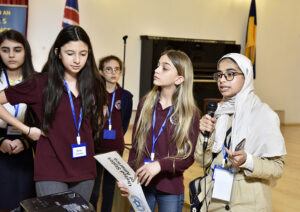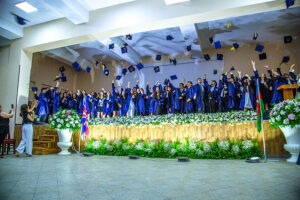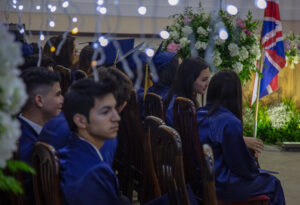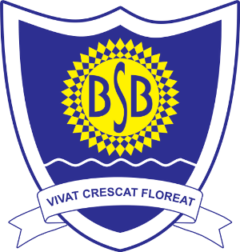Curriculum
Lower Secondary (Key Stage 3) – Year 7, 8 & 9 (11-14 years old)
✔ Key Stage 3
Cambridge Lower Secondary Programme
 The Cambridge Lower Secondary Programme provides a natural progression for children from primary education and builds on and develops their knowledge and skills with a special focus in Mathematics, English and Science. It offers a curriculum framework for educational success for learners, typically 11-14 years old, with an assessment testing structure similar to Cambridge Primary; Progression Tests and Cambridge Checkpoint tests.
The Cambridge Lower Secondary Programme provides a natural progression for children from primary education and builds on and develops their knowledge and skills with a special focus in Mathematics, English and Science. It offers a curriculum framework for educational success for learners, typically 11-14 years old, with an assessment testing structure similar to Cambridge Primary; Progression Tests and Cambridge Checkpoint tests.
Students In Key Stage 3 and onwards have specialist teachers for each of their subjects. The subjects that students take in Key Stage 3 are: English Language, Maths, Science, Art, Computer Science, MFL, Geography, History, Physical education, Azeri and PSHE.
Key benefits
- Has been designed to link seamlessly with the Cambridge Primary Programme and to provide an excellent preparation for students who will go on to study Cambridge IGCSE.
- Develops successful students – it is a framework for education success for students aged between 11 – 14 years.
- Is internationally benchmarked. This allows schools to measure standards overtime.
- Helps teachers assess students’ learning as they progress.
Cambridge Checkpoint tests – Year 7, 8 and 9
- Cambridge Checkpoint tests are available in English, Mathematics and Science. Checkpoint is not a formal qualification with a certificate, although a Statement of Achievement is produced.
- Are valued and accepted throughout the world for their high standards of assessment.
- Provide a good indication of Cambridge IGCSE results.
- Were created with an international audience in mind so that they are suitable for students of all cultural and language backgrounds.
Upper Secondary (Key Stage 4) – Year 10 & 11 (14-16 years old)
✔ Key Stage 4
Cambridge Upper Secondary (IGCSE) is the world’s most popular international curriculum for 14-16 year olds, leading to globally recognized and valued Cambridge IGCSE qualifications. Over 9000 schools worldwide teach it, including more than 650 in the UK. Almost 500 000 entries each year from 144 countries.
Cambridge ICE is the group award of the International General Certificate of Secondary Education (IGCSE) and requires the study of subjects drawn from the five different IGCSE subject groups. It gives schools the opportunity to benefit from offering a broad and balanced curriculum by recognising the achievements of students who pass examinations in at least seven subjects, including two languages, and one subject from each of the other subject groups.
At Key Stage 4, students at BSB begin to specialise more. English Language Mathematics, Physical education continue to be compulsory subjects, and students also choose five additional subjects: Combined Science, Physics, Chemistry, Biology, Geography, German, French, Russian,
Art & Design, ICT, Economics, Business studies, Accounting, Travel & Tourism or History.
In all these subjects (except for Physical education) they start a 2 year preparation for the International General Certificate of Secondary Education (IGCSE) exams which are taken at the end of Year 11 (May-June). At the end of Year 11, students will choose the subjects which they wish to study for A Level in the Sixth Form.
The A-Level is a program split into two parts, with one part studied each year with a wide range of subject options where students can choose up to three subjects to complete in two years.
Year 12 Pre-U
 The Pre-U program is designed for the students preparing to apply for the American, European, Turkish and Azeri universities. It offers the student the opportunity to prepare for the IELTS and SAT exams.
The Pre-U program is designed for the students preparing to apply for the American, European, Turkish and Azeri universities. It offers the student the opportunity to prepare for the IELTS and SAT exams.
 Year 12 International Foundation Year (IFY)
Year 12 International Foundation Year (IFY)
The International Foundation Year (NCUK) – is a one-year accelerated foundation program for those preparing for successful admission and obtaining a bachelor’s degree in the world’s top universities.
